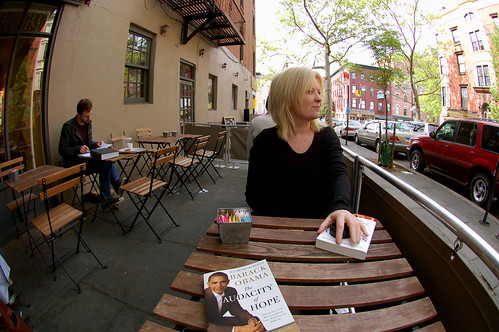Here's our discussion of Rollins's first piece, which was called
"Fuck Suicide." My focus was on the effect of an artist's suicide on our perception of the work he has left behind, but there was also material taking the position that it is morally wrong for anyone with children to commit suicide. ("[I]t should be your utmost goal not to traumatize your kids.")
The new piece is headed
"An Apology." First, let me reveal that when I wrote the previous paragraph, on proofreading, I was surprised to see that instead of "Fuck Suicide," I had written "Fuck Apology." Is Rollins really sorry and, more importantly, what is he sorry for?
For the last 9+ hours, I have been answering letters from people from all over the world. The anger is off the scale and in my opinion, well placed.
The article I wrote in the LA Weekly about suicide caused a lot of hurt. This is perhaps one of the bigger understatements of all time. I read all the letters. Some of them were very long and the disappointment, resentment and ringing clarity was jarring.
He acknowledges the "anger" and the "hurt" he caused, and he wants those who are enraged to see that he's taken quite a bit of time to read everything and to undertake to write back to everyone. Acknowledging that your words have hurt doesn't concede that you now see that what you've expressed is wrong.
That I hurt anyone by what I said, and I did hurt many, disgusts me. It was not at all my intent but it most certainly was the result.
Even this does not take the words back or express regret. He could be
invoking the principle of double effect, which explains why it is ethical to do something that has a harmful effect when your
intent was to do good, to produce a good effect, even when you know the bad effect will also follow. You don't
like that bad effect, but you did go ahead and do what caused it.
Next, Rollins — puts himself within the circle of victims of depression:
I have had a life of depression. Some days are excruciating.
I'm sure many of the letter-writers accused him of not understanding what it is like to be depressed. I
f you only knew how it feels, you would not say such ignorant things. Those letter-writers are so very wrong.
Knowing what I know and having been through what I have, I should have known better but I obviously did not.
Known better than... what? To predict how very angry people would get? Is he feeling sorry for himself for attracting all that hate mail?
I get so mad when I hear that someone has died this way. Not mad at them, mad at whatever got them there and that no one magically appeared to somehow save them.
Here he's backing away from a demand for personal responsibility and adopting the belief that the motivation toward suicide is a separate entity beyond the mind of the person: the "whatever," the absence of magical saviors.
I am not asking for a break from the caning, take me to the woodshed as much as you see fit. If what I said has caused you to be done with me, I get it.
This sounds as though he feels sorry for himself, because so many people got mad at him. He's presenting himself as the victim, visualizing the criticism as
physical violence, a caning. And, as noted above, he himself suffers from depression, so he's doubly the victim. The "whatever" torments him and the people who hated his "Fuck Suicide" are beating him up.
We finally reach the apology:
I am deeply sorry. Down to my marrow.
For what? Is this a nonapology?
I can’t think that means anything to you, but I am. Completely sorry. It is not of my interest to hurt anyone but I know I did.
I say nonapology. He's sorry that what he said hurt, and he knows that being perceived as hurting others is against his interests. He's sorry for himself! And he's determined to flip the narrative: If we're supposed to empathize with the depressed and not criticize, we need to empathize with him, one of the legions of the depressed.
IN THE COMMENTS: betamax3000 said:
Rollins prides himself on being the angry Truth-teller. This works when you are telling the kids what they want to hear. In this instance he misjudged the expected reaction of agreement to his Truth, which calls attention to the importance of his audience in such events. He probably needs to go back to talking tough against Straw Men.
Paddy O said:
His previous article is out of my analog world. I know it existed, yet it has nullified its existence








